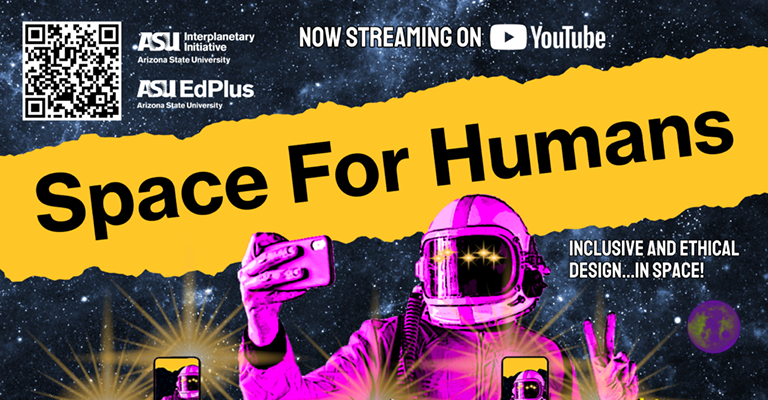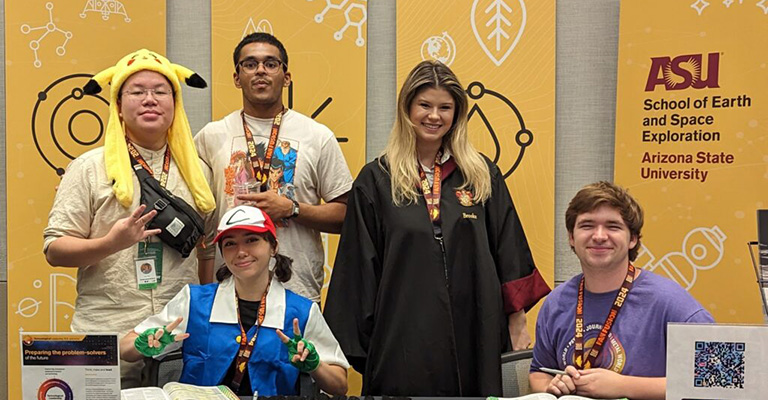About
How can we make complex space sustainability topics accessible and engaging for the public, encouraging new audiences to see their relevance to ecological sustainability and global society?
Space For Humans is the Interplanetary Initiative’s newly launched YouTube channel, in collaboration with ASU’s EdPLus. Every week, ASU faculty and students translate what is happening in space research and the space industry in punchy and fun segments that relate to the lives of real humans. Like, share and subscribe for more Space For Humans!
Status
Active
Mission Alignment
Access | Inclusivity | Sustainability
Category
Media and public outreach | Learning and education
Environment
Earth
Contact
Eric Stribling
Interim Lab Director and Assistant Teaching Professor
Interplanetary Initiative
Key accomplishments
- 30,000 views and 750 subscribers in less than a year.
- Featured on KJZZ, ASU Course Stories Podcast, the AZ Science Center and at the Desert Botanical Gardens.
- OLC Accelerate 2024 conference presentations:
- Creating Space for Accessibility and Inclusion in Space Education: An Interdisciplinary Public Scholarship Approach (Space for Humans).
- Building Careers Beyond Earth: Student Engagement and Universal Design in Space Education (Space for Humans).
- Space for Public Scholarship: Leveraging YouTube for Public Scholarship and Interdisciplinary Studies for Inclusion in Space (Space for Humans).
News

Space for you, space for me, Space for Humans
June 27, 2024
ASU’s Interplanetary Initiative launched “Space for Humans,” a YouTube series on inclusive space design.

Exploring Space and Science Fiction at Phoenix Fan Fusion 2024
May 30, 2024
At Phoenix Fan Fusion 2024, ASU’s Interplanetary Initiative showcased student CubeSat projects and hosted panels on tech education and inclusive space design.

I wanted to be a part of this project because it was a great opportunity to learn more about transformative space technology and share it in a creative way.
I definitely wish there was more content like Space For Humans! The space community needs to be more vocal about creating inclusive and ethical designs for space. It’s also a good reminder to people about the mass effects space technologies have on our daily lives. Hopefully it can lead to more support for space science.
Team
Explore more projects
Learn about our research programs dedicated to creating a future in space that prioritizes people and environments. Collaborate with experts and students to explore groundbreaking ideas and solutions that drive positive change.